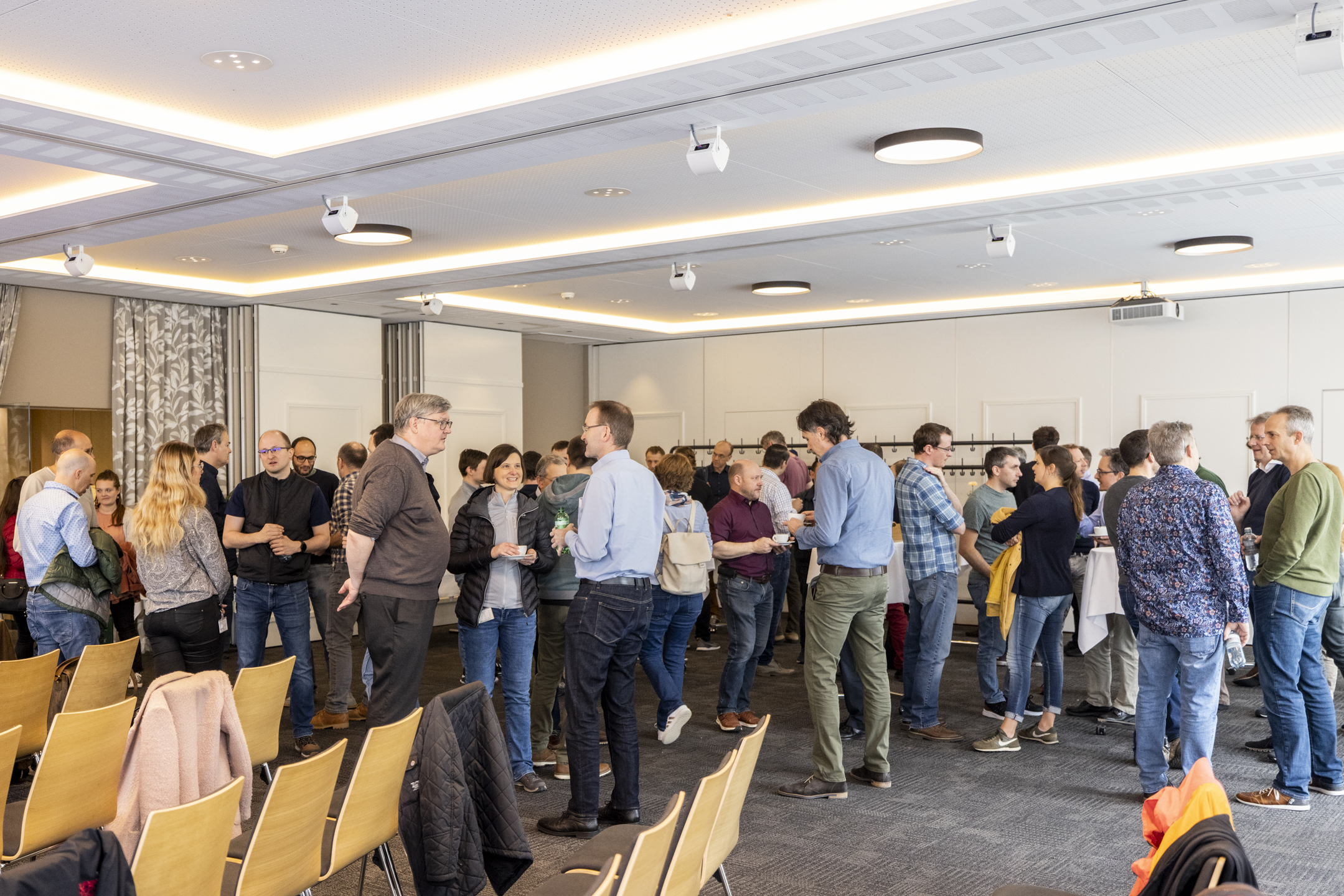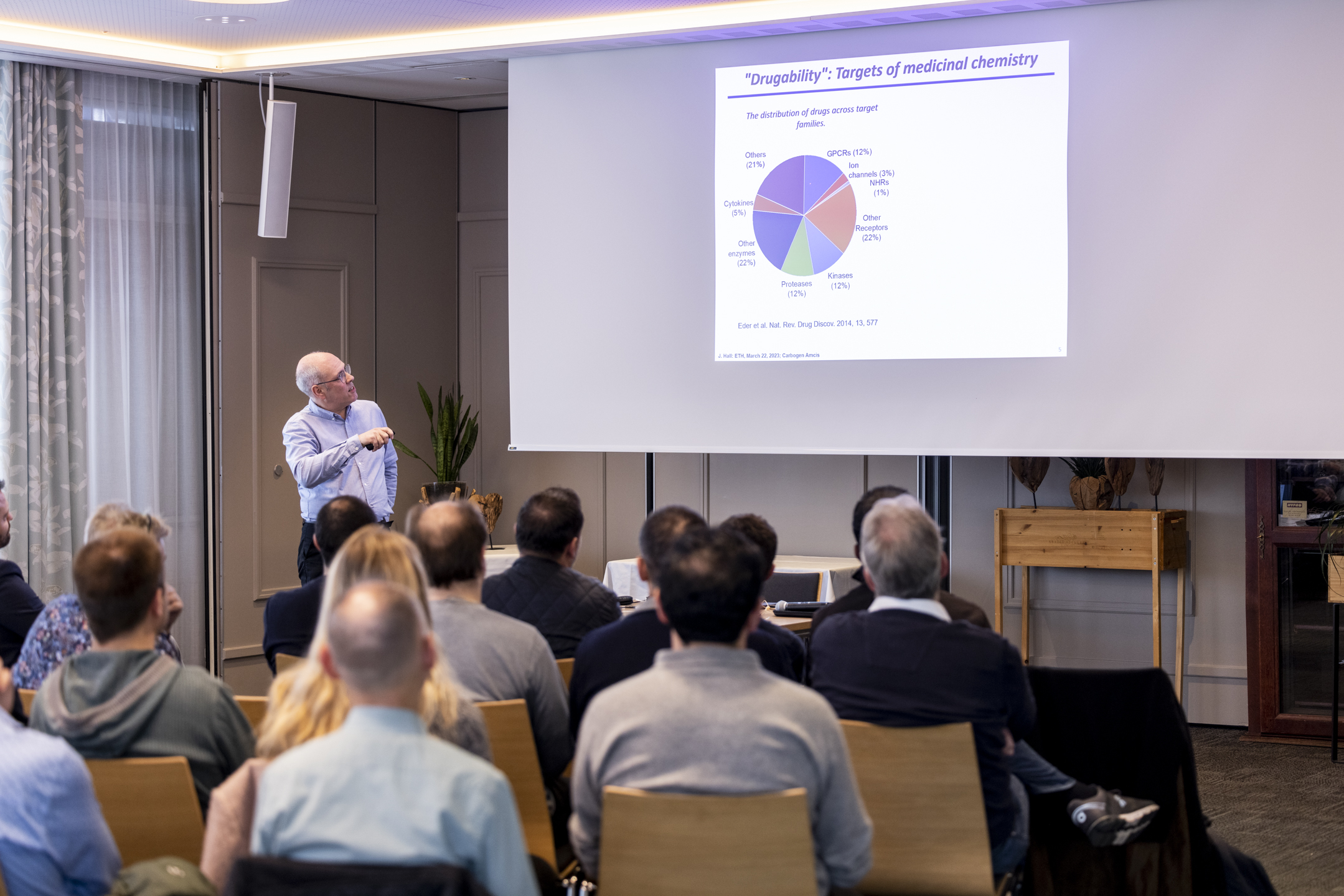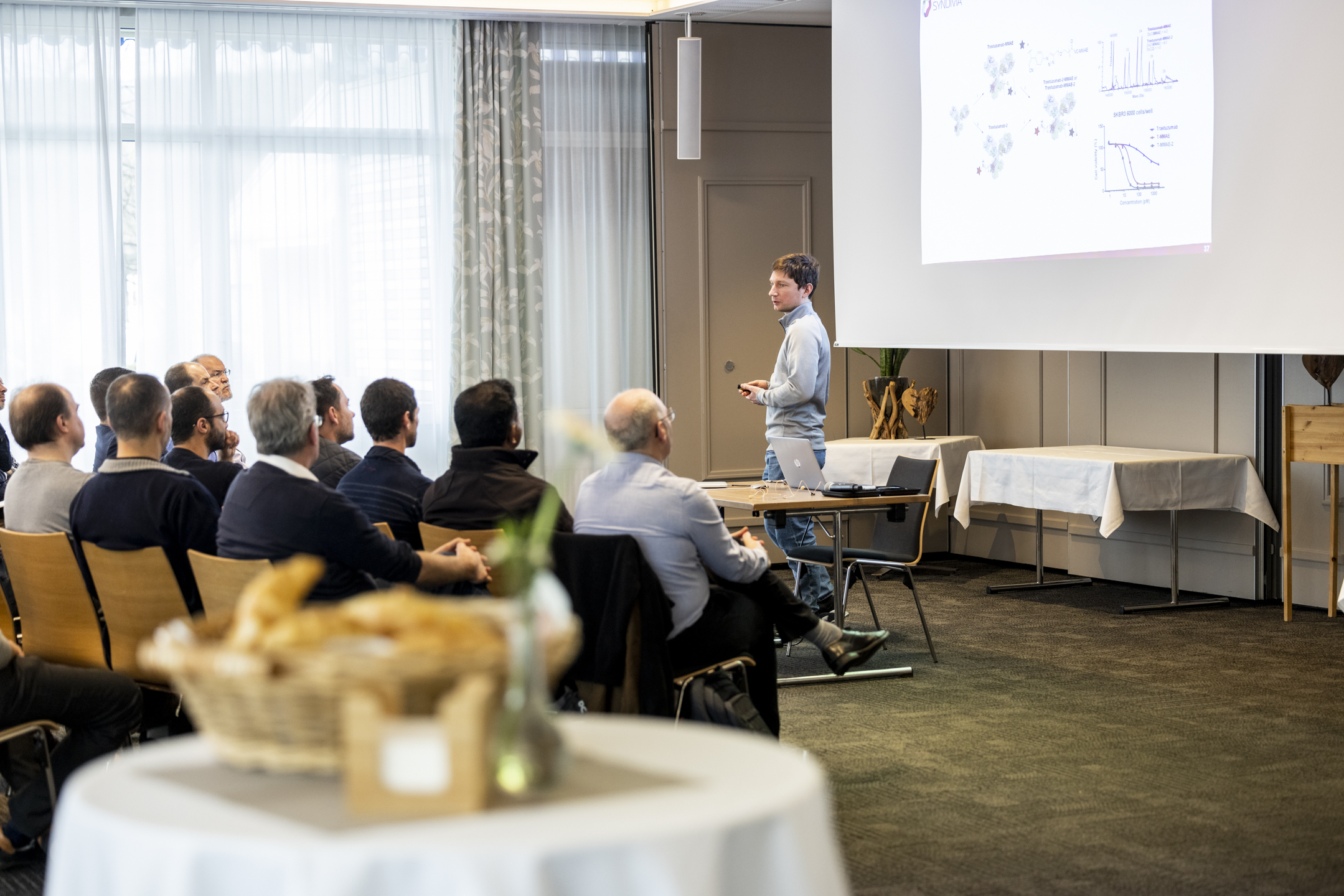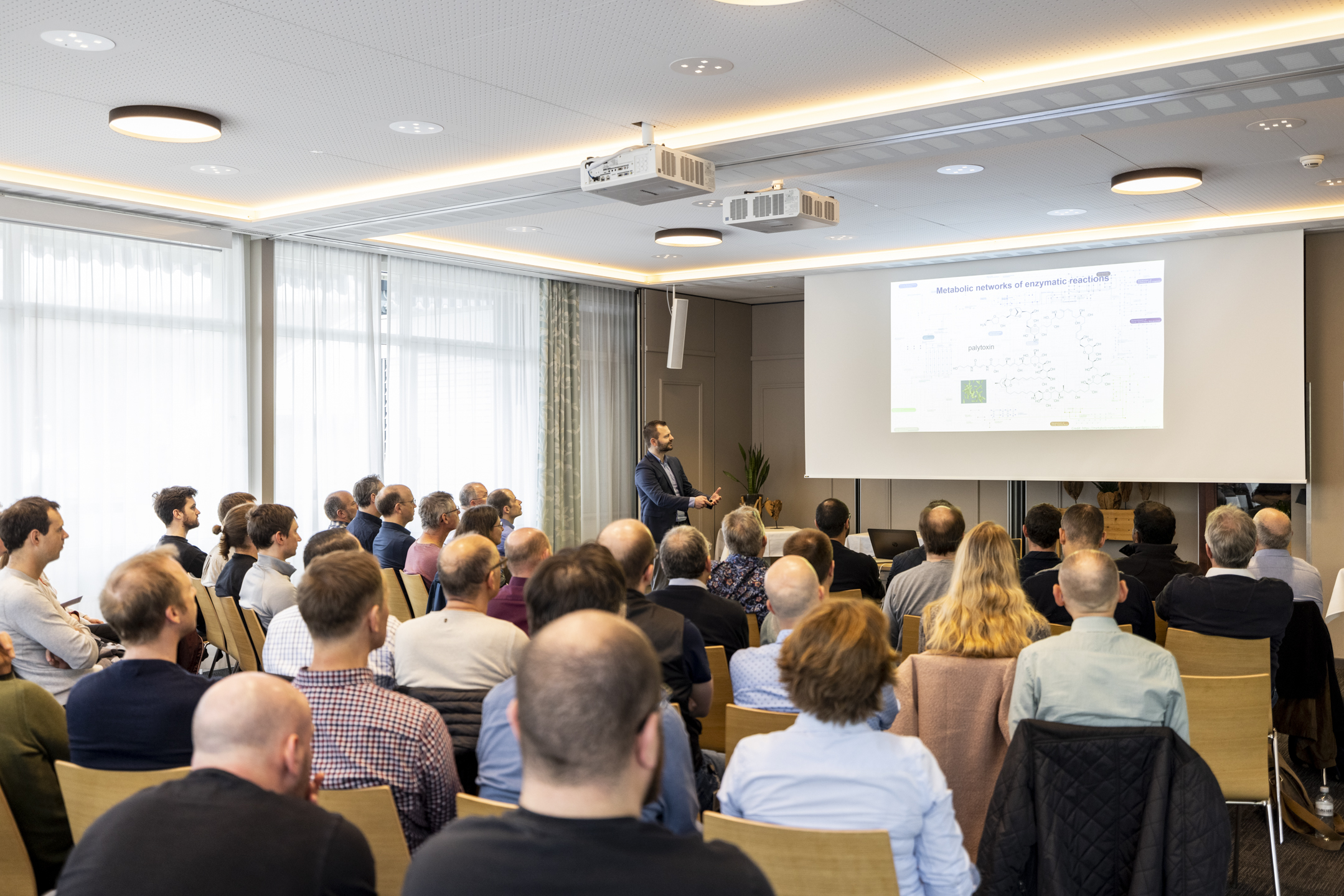CARBOGEN AMCIS 2023 Spring Science Day Event
Science Day
With the goal of encouraging scientific exchange and furthering continuing education, the Development chemists at CARBOGEN AMCIS hold a Science Day seminar series once or twice per year. Over time this half- or full-day event has expanded to include participants from all departments in Switzerland and from our non-Swiss sites. The topics presented are varied and can include invited speakers from academia and industry, the discussion of internal projects, or new hires presenting their recently completed dissertation or postdoctoral research.
The 2023 spring Science Day event was held March 23 at the Gasthof zum Schützen in Aarau. Over 50 participants attended from our Aarau, Bubendorf, Neuland (Hunzenschwil), Manchester UK, and Veenendaal NL sites.

Speakers
Professor Dr. Jonathan Hall from ETH Zürich began the seminar with a presentation titled “RNA-based drugs come of age”. His talk included the background and history of the field of oligonucleotide chemistry and the benefits and challenges of its application in the development of effective drugs. Following an overview of solid phase oligonucleotides synthesis, he then presented recent developments and the current clinical pipeline of oligonucleotide drugs (Hill, A.C.; Hall, J.; Helv Chim Acta, 2023; https://doi.org/10.1002/hlca.202200169).

Dr. Sergii Kolodych from Syndivia SAS in Strasbourg, then presented on "Taming Random Conjugation: A General Approach for Equimolar Linking of Proteins and Payloads" The talk began with a brief introduction of the challenges to control the DAR (Drug Antibody Ratio) when binding drugs to surface lysine residues of proteins. Dr. Kolodych then described the successful development of a new process for achieving a single attachment DAR of 1) to the surface of, for example, an antibody.

The third presentation was by Professor Dr. Paweł Dydio from the University of Strasbourg & CNRS, describing the work of his group on "Mechanistic Design, Understanding, and Multicatalysis in the Development of Catalytic Chemical Processes". This work seeks to utilize multiple homogenous catalysts to achieve transformation that are not currently possible or inefficient. For example, he presented work that demonstrates the feasibility of arylating beta-hydroxy methylene groups and the enantioselective gamma-hydroarylation of allylic alcohols. More recent work was also presented on successful Rh(I)-catalyzed transfer C−H borylation of alkenes. This catalytic process allows the late-stage functionalization of molecules with the potential of derivatizing existing libraries of biomolecules for further study (Veth, L.; Grab, H.A.; Martinez, S.; Antheaume, C.: Dydio, P.; Chem Catalysis, 2 (4), 2022, pp. 762-778, https://www.sciencedirect.com/science/article/pii/S2667109322001038).
